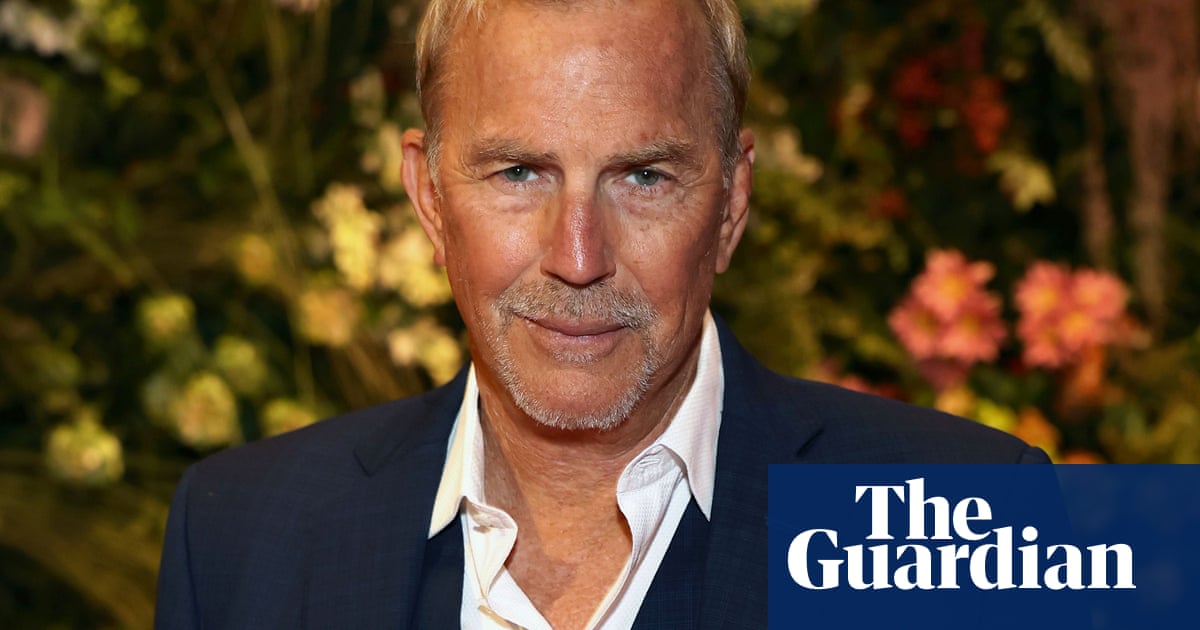A stunt performer is suingKevin Costnerand the producers of his film Horizon: An American Saga – Chapter 2, alleging that she was made to perform in a “violent” unscripted rape scene without the required notice, consent or a mandatory intimacy coordinator present.
Devyn LaBella was the lead stunt double for Ella Hunt, who plays Juliette in the Horizon films, a four-part western anthology written, directed by and starring Costner. LaBella’s lawsuit,filed in California on Tuesday, alleges that on 2 May 2023 Costner improvised a scene in which Juliette would be raped, one day after Hunt and LaBella filmed a scripted scene in which Juliette was raped by a different character.
Hunt refused to perform the new scene, the lawsuit alleges, and LaBella was summoned to set, without knowing that Hunt had declined and left.
According to her complaint, LaBella was not warned that the new male actor had been directed to mount her, pin her down and “violently” rake up her skirt. LaBella alleges that Costner told her to “lay down” in a wagon before he directed the male actor “to repeatedly perform a violent simulated rape” on her while Costner “experimented with different takes of the rape action”.
LaBella’s suit alleges that the scene violated contractural protocols negotiated by the performers’ union Sag-Aftra, which requires that all performers are given 48 hours notice and must consent to any scenes involving nudity or simulated sex.
She claims she was not given the required notice and that she did not consent, as stipulated in her contract. She also claims the film’s intimacy coordinator was not present, which was mandatory under Hunt’s contract and applied to LaBella as her stand in.
The lawsuit also claims the set was not closed; only a minimal crew is meant to be present for sensitive scenes involving nudity, sex or rape. LaBella’s suit claims “the scene was broadcast publicly on monitors for the entire crew to witness … anyone could walk by and observe the scene being performed.”
LaBella’s suit states that the scripted rape scene, filmed the day before, involved rehearsals and the presence of an intimacy coordinator, and the set was closed for the actors’ privacy.
LaBella is suing for damages for sexual harassment, a hostile work environment and breach of contract, claiming she immediately felt “shock, embarrassment and humiliation” and began attending therapy in June 2023.
“I was left exposed, unprotected, and deeply betrayed by a system that promised safety and professionalism,” LaBella said. “What happened to me shattered my trust and forever changed how I move through this industry.”
Costner denied the allegations. In a statement given to Variety and Deadline,his attorney Marty Singer said the actor-director“always wants to make sure that everyone is comfortable working on his films and takes safety on set very seriously”, and said LaBella’s claim has “absolutely no merit, and it is completely contradicted by her own actions – and the facts”.
Singer said the scene had been explained to LaBella, and after a rehearsal, she had given a “thumbs up” to a stunt coordinator, indicating her consent. He also claimed LaBella had been in “good spirits” afterwards and produced a text message that LaBella allegedly sent to the stunt coordinator after the shoot which read: “Thank you for these wonderful weeks! I so appreciate you! I learned so much and thank you again. I’m really happy it worked out the way it did to. Have a great rest of the shoot and yes talk soon!”
LaBella’s lawsuit claims that she had complained to colleagues about the experience but, because production was still under way, she felt she “had to continue working and keep up a professional attitude”.
Costner has partly self-funded the first two Horizon films, putting up US$38m of the estimated US$100m budget.Chapter 1was released in June 2024 but flopped at the box office, making $38.7m globally. Chapter 2 premiered at theVenice international film festivalin September 2024 but a general release date is yet to be announced.
